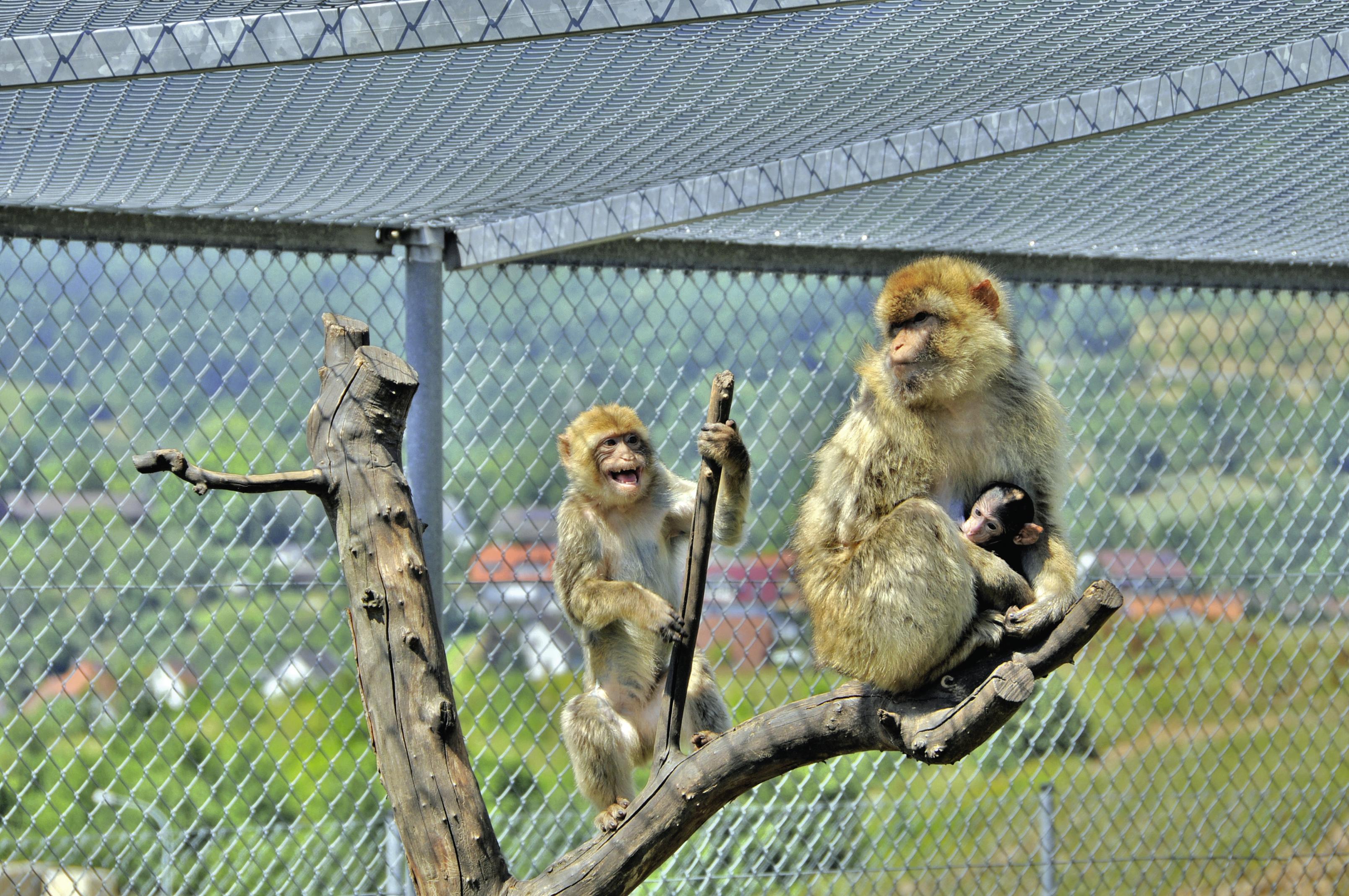Young talent welds together
Barbary macaques are highly social animals that live in a complex social structure. The large groups, which can consist of 12-88 animals, split into smaller units. Females remain in their natal group and form the core of the group with closely related females.
It is noticeable that the males also look after other young animals, which gives them the advantage of not being attacked by their conspecifics.
The size of the territory is heavily dependent on the food supply and human disturbance.
In the wild, they have a very varied diet. Their diet includes a wide variety of plant foods such as fruit, leaves, seeds, herbs, roots and mushrooms. Occasionally, however, they also eat animal components such as insects, bird eggs or worms.
In the wild, they spend at least a quarter of their active time foraging.
Barbary macaques have a gestation period of 165 days on average. After this, usually only one (rarely two) young are born. The young animal then only has a birth weight of approx. 500g and, unlike the adult animals, still has thin black fur, which changes colour within the first four months.
Females reach sexual maturity at four to six years of age, which is on average slightly earlier than their male counterparts. They reach sexual maturity, at which point they also leave the birth group, at 5 to 8 years of age. The life expectancy of Barbary macaques is 20 to 30 years.


